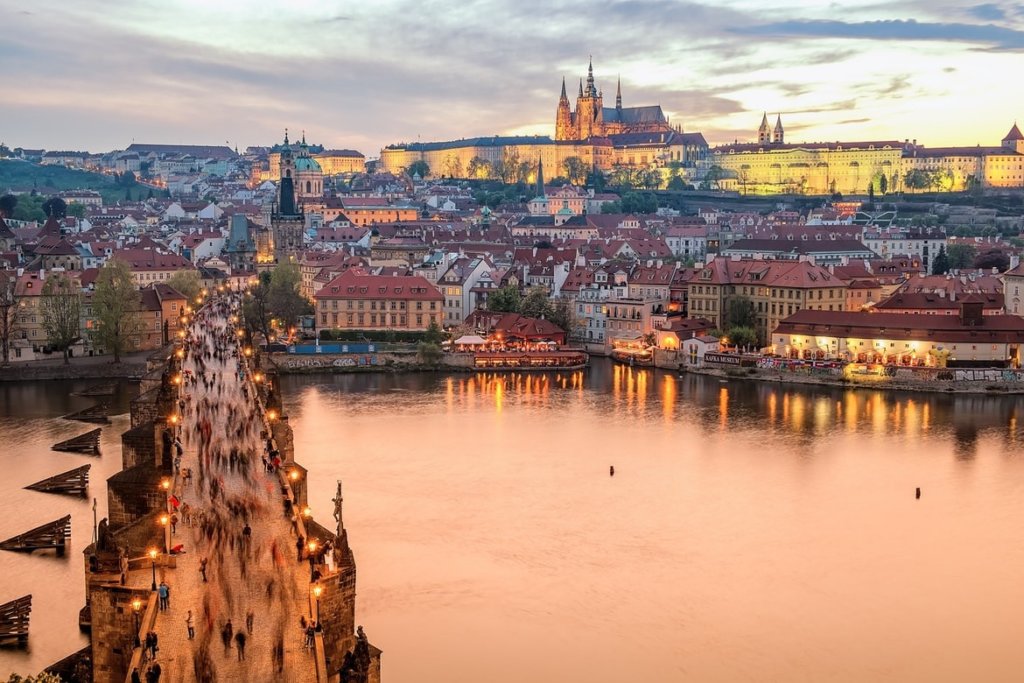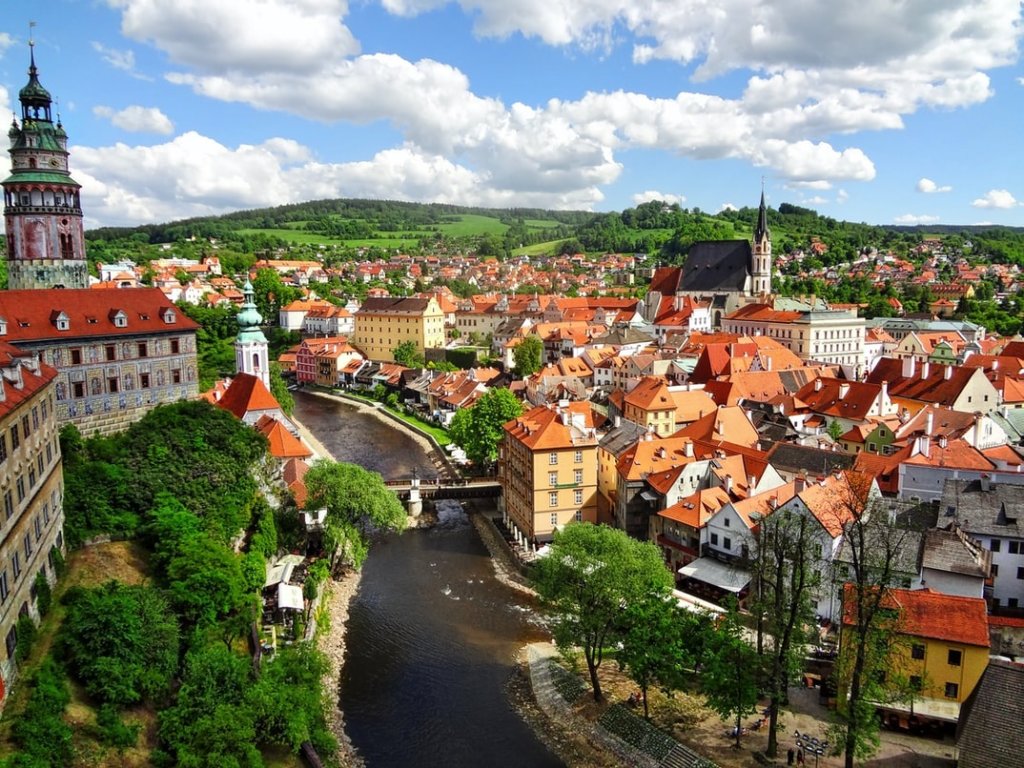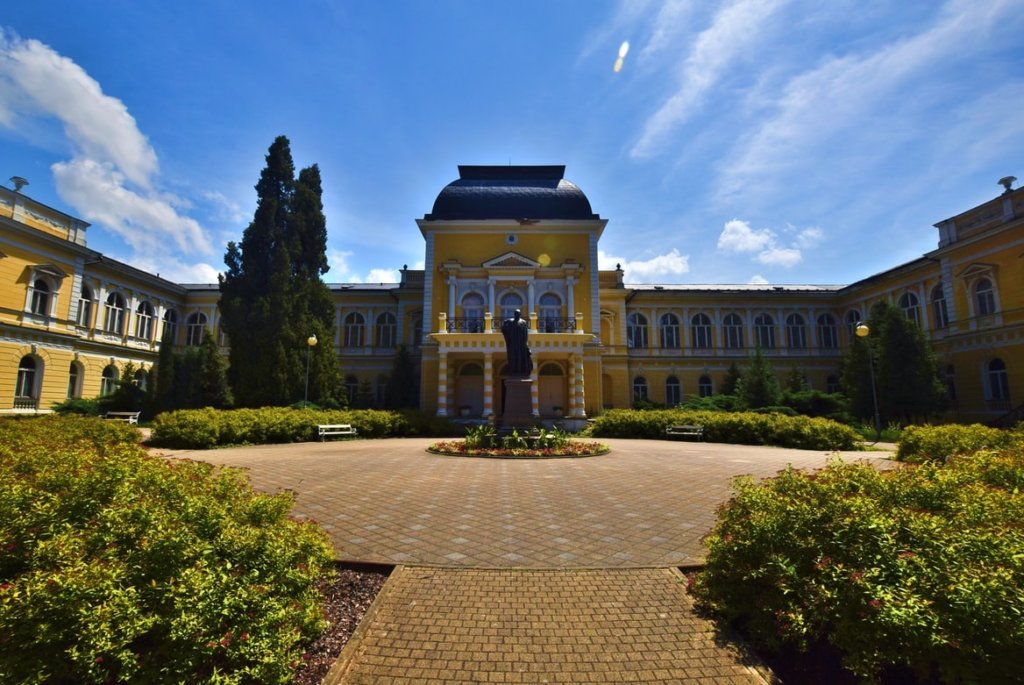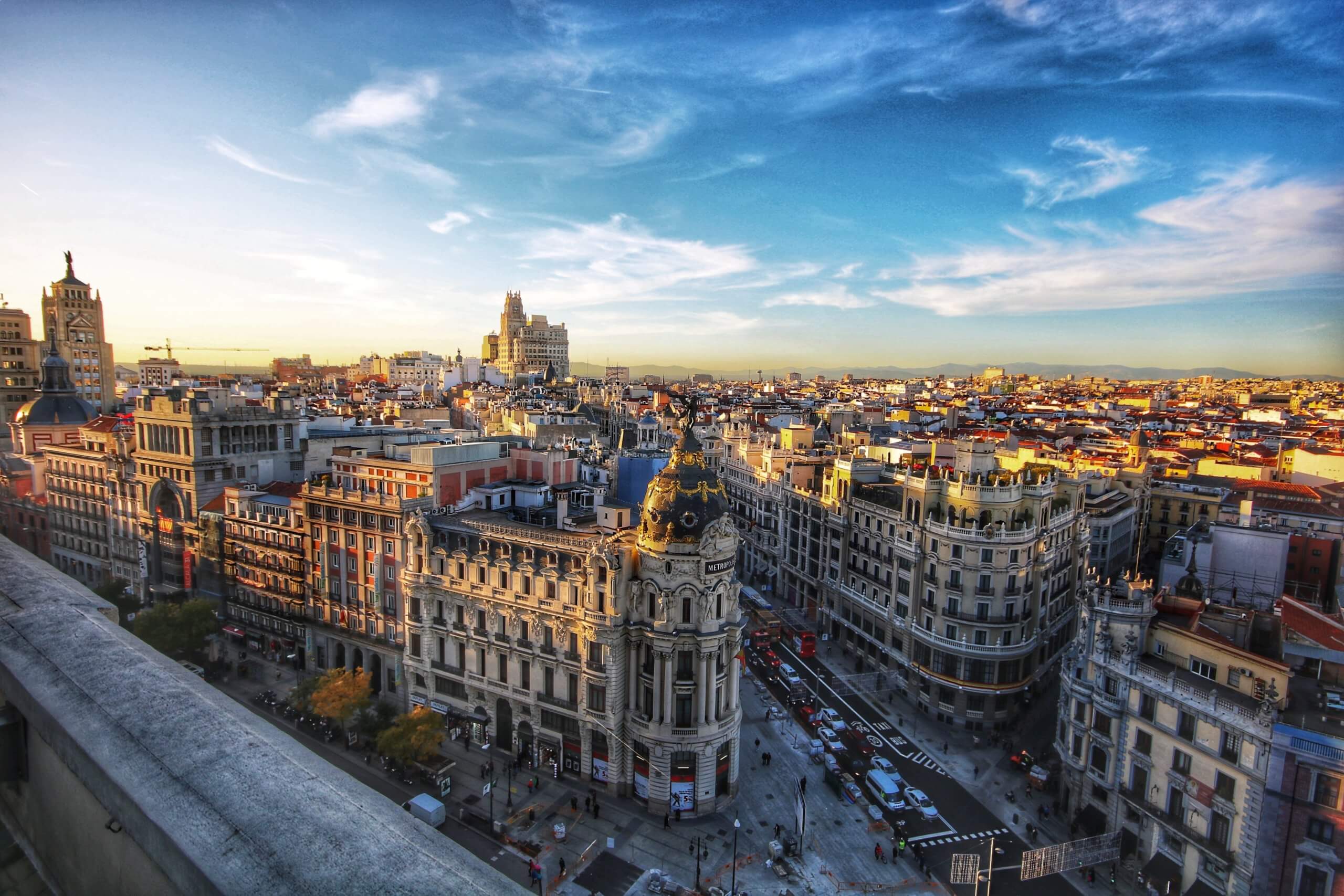- Guides
Our Top 10 Tips to Finding Friends Abroad
Let’s face it, moving abroad, where everything is unfamiliar, can feel like a bit of a maze. You’re struggling with...
Read moreGuides
With welcoming locals, a thriving international community, and a dense cultural scene, the Czech Republic might very well be your next home. Boasting over 2000 castles, 12 UNESCO world heritage sites, and thousands of international companies, this central European country has become a booming destination for expats.
Whether you prioritize a breath-taking landscape or the quality of the beer, the Czech Republic has it all. Excellent salaries and a low cost of living will have you booking your flights to this beautiful country faster than you can say jedno pivo prosím (one beer please)!

Accommodation in the Czech Republic is cheaper than in most other countries and major cities, which is good considering you will be in such a historically rich and diverse country. Prices will differ, although not too much, depending on where you choose to live. Since the Czech Republic has such a diverse landscape, it is easy to find accommodation that fits your lifestyle. Whether you love the countryside or prefer the heart of the city, you will find your ideal location that fits your budget.
Before you arrive, you should join Facebook groups to start letting out some feelers. You can also look into local websites; however, this can be pretty confusing, with no language understanding. Be careful of websites aimed at expats, as these can usually have extremely high markups.
The second option is to find an agent once you arrive. These people will usually help you find something in the range of what you’re looking for. However, they charge an agency fee.
Utilities and other charges are not usually included. Depending on how warm you want to stay in the winter, expect to pay an additional 1000 CZK – 1700 CZK (40€ – 65€) per month.


As you have probably noticed, even if the Czech Republic is part of the EU, it still uses its own currency, the Czech Koruna, or Crowns.
Even if Prague is considered the most expensive city in the country, the cost of living is still relatively cheaper than in most other European cities. Although housing, education, and some recreational activities are on the higher end of the spectrum, groceries, alcohol, transportation, and communications (internet, phone, etc...) are very cheap.
The average salary in the Czech Republic is about 32,000CZK - 35,000CZK (1250EUR - 1380EUR) per month. This decent salary paired with a low cost of living makes the Czech Republic a top-rated destination for expats and students from all over the world.
And if you’re a digital nomad, it’s a win-win! You’re still getting paid in your home currency, and thanks to the great exchange rates with USD and EUR, you’ll be able to have an excellent quality of life while making a bunch of savings.
| Groceries | Czech Republic |
| 1kg oranges | 1.50 € |
| 12 eggs | 1.61 € |
| 1kg potatoes | 0.77 € |
| Restaurant/Cafe | |
| Imported beer (0,5 l) | 1.38 € |
| Meal for 2 at restaurant | 27.61 € |
| Cappuccino | 1.96 € |
| Indulgence and Health | |
| Gym Membership | 31.62 € |
| Cinema Ticket | 7.10 € |
| Public Transport | |
| Single Ticket Bus | 0.95 € |
| Taxi 1km(normal tariff) | 1.10 € |
| Average Salary | 1,300 € |
Prague is the only city in the country with a metro, and it’s also equipped with a tram system, trolleybuses, and buses, making getting around the city very easy. Not to mention that the public transportation system is also very dependable.
One of the main upsides of being a landlocked country is that it is effortless and cheap to get anywhere and across Eastern Europe. For example, a bus from Prague to Brno will only set you back about 7 €, and a bus to Berlin will be about 15 €.
If you have a bit more money to spend or are just looking for something a bit quicker, the train is an excellent alternative. For instance, for a train ride to Berlin from Prague, the ticket will cost you around 30€. However, it will take you there in only 4 hours, compared to 10 hours by bus.
The last option for those who want to travel in style is to take a flight. Luckily, Europe has many discount airlines to travel from place to place. The Czech Republic is accessible by flight from several international airports. The largest is Václav Havel Airport near Prague, although there are several other international airports in Brno, Karlovy Vary, and Monov (near Ostrava).
While driving is an option during your stay, public transportation is more than enough to get you from place to place. If you do decide to drive, most other EU driver’s licenses will be accepted. You will have to check the regulations for your specific country to know if you’ll have to get yours converted or translated.
The Czech Republic is a huge country with vastly different landscapes. You will never run out of things to do, and you definitely will never run out of castles to marvel at. From beautiful, picturesque villages to the lovely Czech wine country, anywhere you decide to go will make you fall in love with this country. It is also home to 12 UNESCO World Heritage sites!
If you’re more of an outdoor person, you will be sure to stay busy visiting all the fantastic places the Czech Republic has to offer.
Bohemian Switzerland National Park, located in the northwestern part of the country, is just a few hours from Prague. With a hugely diverse environment that includes lakes, caverns, and mountains, this is the perfect place to come for hiking, photography, and to be close to nature.
The Pastýřská Wall is a huge sandstone massif accessible to the public. You’ll have to pay only for your equipment rental when you arrive and can immediately start climbing the massive wall. With 14 different ways to climb, there is room for everyone, no matter your expertise level.
Aside from this, there are many other activities in the Czech Republic for outdoor enthusiasts. Rent a bike and pedal your way to one of the many castles rather than taking a car. The Ohre cycling route shows you the Western Bohemia region, starting in Germany and taking you all the way to Prague!
If all this adventure leaves you feeling thirsty, be sure to “Czech out” the Pálava region. The warmest region in the Czech Republic is full of hiking trails and windy bike routes. Take these to one of the many wineries tucked away in this area.
If being outdoors isn’t your style, don’t worry. The country has got you covered with thousands of museums, castles, caves, and breweries to visit. We’re talking over 2000 castles just waiting to be showcased on your Instagram story. Not to mention all the great little cafes, restaurants, and pubs for you to wind down at after your long day of exploring.

The Czech Republic has consistently been in the top 3 best countries for expats to work in. About half a million of the people living in the Czech Republic are foreigners, so you will not miss your chance to run into fellow expats.
With most of them living in Prague, it won’t be hard to link up with the foreign community. Go places where they’re most likely to work, tour agencies, hostels, restaurants, etc. An easier way would be to join Facebook groups such as Expats in Prague or Brno Expats, or use sites like InterNations!
In our opinion, the easiest way is to find language exchange groups. Not only will this help you find other expats, but you will likely meet some cool locals looking to practice their English or any other language you may speak.
Unless you live in one of the major cities like Prague or Brno, where most people will have at least a basic understanding of English, it is best to start learning some basic Czech. Many older generation folks will speak only Czech, especially in smaller villages, so it is best to practice some phrases. Not to mention, it’s fun to see the faces of shop owners light up when you attempt to speak to them in their mother tongue.
Speaking the local language will also give you a boost when you are looking for a job. Here are some basics:
The Czech Republic is one of the most diverse countries in the EU and one of the most Metropolitan. Because of its central location, many international companies use the Czech Republic as a base for their international companies. The bonus is that English is the mainly used business language, making it an ideal place for foreigners to find work. The Czech Republic’s unemployment rate is at an all-time low, so finding a suitable industry won't be hard.
The main industries in the Czech Republic include tourism and manufacturing, with finance and IT becoming increasingly popular in recent years.
People from country members of the EU should have no trouble arriving and finding a job right away. Although for those from outside the EU, you will have to apply for a work permit. The maximum length of a work permit is two years, but it can be extended.

The work culture in the Czech Republic will completely vary based on the kind of job you have. A corporate company that requires face time with clients will have a completely different environment than a startup IT company.
The more laid-back jobs such as ones in startups will usually have get-togethers set up after work every week, usually on Fridays. Don’t forget, the Czech Republic is the number one country for beer consumption, so after-work drinks are always appreciated.
A full-time job in the Czech Republic means 40 hours per week, the workday starting at 9:00 and finishing at 17:00. You may also agree with your employer on working part-time, which would also mean lower wages. The employer can demand a maximum of eight hours of overtime per week, but no more than 150 hours per year. Any overtime hours worked are paid as bonus pay.
The Czech Republic also offers 25 days of paid vacation a year, with 13 extra public holiday days and maternity leave, which lasts for 28 weeks.
Be always sure to look over your contract, ask any questions, and discuss all the terms with your boss before signing it. Your agreement will always tell you the following:
If you are not satisfied with your job, you can always resign. Typically, you’ll just have to write an agreement of termination of employment, and the resignation notice is usually 2 month period.
You can only be terminated from your job without notice in cases of serious gross misconduct or specific cases concerning the conviction for a criminal offence.
You and your employer may agree upon a probationary period, although this is not necessary. It can last up to 3 months (6 months for managers). During this time you can decide if the job is right for you. If not, then you can resign without notice; however, your employer may terminate you without notice as well.

The minimum wage in the Czech Republic is around 92 CZK (3,50€) per hour. While this may not seem like much, keep in mind the cost of living in the Czech Republic.
This number will differ depending on what sector you work in. For example, a restaurant employee will earn around 3,50 € per hour, while someone working in a bank may make 11 € per hour.
The Czech Republic has a 15% flat-rate tax system. This is true if you are insured by the social security system in your home country. Otherwise, you will be taxed at a rate of 20.1%, which includes payments to health and social security.
Once you arrive in the Czech Republic, there are many ways to expand your social and professional circle.
While it may seem a bit daunting at first, interacting with locals is the first primary way to network. The stereotype is the same as many “eastern European” countries; the people are cold and not friendly. This couldn’t be further from the truth. In reality, while the Czech people may not smile all the time, they are usually always interested in meeting new people. They also love a chance to practice their English whenever the opportunity arises. Never pass up a conversation with a random stranger at your local cafe; you never know what could come of it.
If you don’t feel comfortable talking to locals, don’t worry, you can join online communities to network just as efficiently. There are endless lists of online communities; a couple of the most common ones are Eventbrite or Meetup. Besides those, there are tons of Facebook groups that you could join specifically geared towards expats. These can range from fun language exchanges to professional “boot camps.”
You could also simply go out and join some clubs. There are also endless options here, such as cultural centres or sports clubs. These can be a fun and engaging way to meet new people.

For EU nationals, it’s pretty easy to register in the Czech Republic. You don’t need any type of visa, and you’re eligible to work and live in the Czech Republic without any worry. Citizens of Iceland, Liechtenstein, Norway, and Switzerland have similar rights as EU citizens.
If you are going to stay longer than 3 months, you can apply for a registration certificate. Although as an EU national you don't have to do this, it will make the process of living here much easier for things such as paying utility bills or registering your car.
The process to get your registration certificate is simple:
Once your long-term residence permit is approved, you’ll be automatically assigned an identification number. This ten-digit number will serve as your tax identification number (TIN). You will need this number to open your bank account, and it’s better to open a local bank account to avoid piling up exchange fees.
Of course, some banks are more popular than others among expats. You should choose a bank with low service fees and that allows international transfers. If you decide to go home, you don’t want your money to be stuck in the Czech Republic. Here are some of the most popular banks that offer no opening or management fees:
Once you have your TIN and you’ve decided which bank to pick, all you need to open a bank account is:
It is good practice to try and find a bank that has English-speaking staff and low exchange fees if you plan on transferring any money. Banking fees since these can vary greatly. There are also special offers that change every couple of months. Use of an ATM is charged, usually around 6 CZK for withdrawing from any home bank machine. If you use an out of network ATM, the fees might be higher.
Moreover, keep in mind that Czech banks are known to take a long time to deliver debit and ATM cards, so be patient to get yours in your mailbox.
The healthcare system in the Czech Republic is known to be one of the best in the EU. It is supported by taxes and social security contributions made by employees and employers. Social security contributions cover pensions, unemployment benefits, and the sickness fund. In total, employers contribute 33.8% of an employee’s salary to these, while the employee contributes 11%.
The Czech Republic provides free healthcare to citizens, permanent residents, and foreigners working for local companies. Healthcare coverage in the Czech Republic even covers dental care. Expats can choose to either use the public healthcare system or to get private health insurance. With the number of doctors per inhabitant in the Czech Republic being one of the highest among all the EU countries, it is easy to see why the public healthcare system is excellent and private health insurance is not really needed among citizens.
Most doctors in public hospitals have been trained in western universities, which is good when you need someone to speak English. Private insurance, on the other hand, will be a bit more costly. However, in return, you will get a much more service-oriented approach from your doctors as well as shorter wait times.
As you’re now aware, the Czech Republic has a lot to offer. From its vibrant cultural history to its fast-growing economy, the country has attracted more and more expats every year. Capitalising on the presence of numerous international companies, the Czech Republic makes it a breeze for foreigners to obtain their work visas. It’s no wonder why half a million expats are calling this beautiful place their home.
You can count on the warmth of the Czech people to make up for the cold winters and give your stay an authentic taste. Even if Prague is a thriving metropolis, don’t hesitate to jump on a bus or a train and experience all this often overlooked country offers.
Whether it’s the diverse landscapes or just the beer that entices you to move here, don't wait another day! Check out the job opportunities we offer at Workwide Recruit.

Let’s face it, moving abroad, where everything is unfamiliar, can feel like a bit of a maze. You’re struggling with...
Read moreWelcome to the beating heart of Spain – Madrid! This bustling metropolis offers a unique blend of rich culture, historical...
Read more
